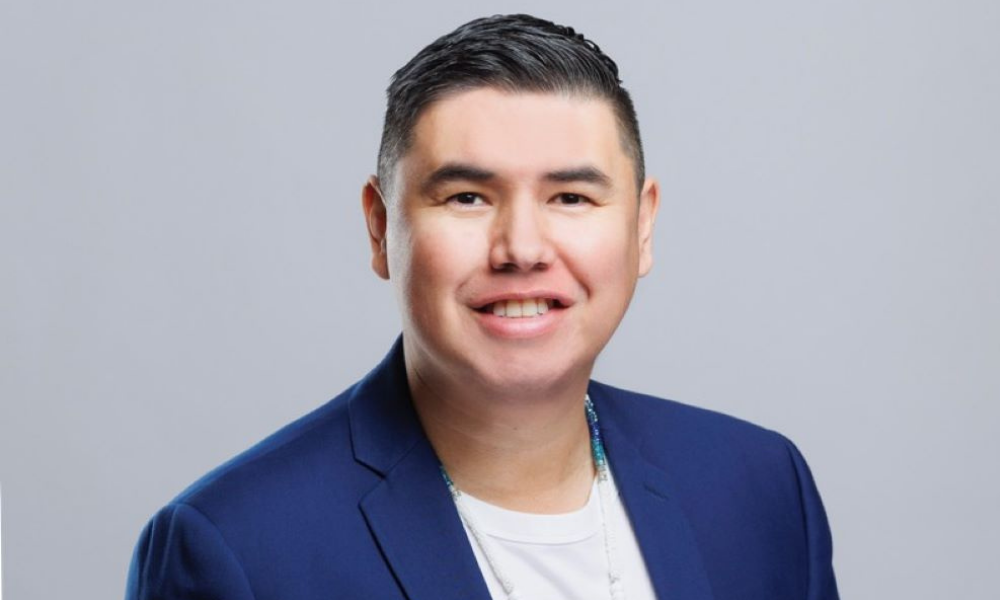
Kendal Netmaker, Indigenous advisor, sits down with HRD to discuss cultural awareness in leadership

For Kendal Netmaker, the skills he’s honed and perfected over time came from his ancestors.
“I’m First Nations, I’m Cree,” he tells HRD. “When we were growing up, oftentimes we were forced to listen - this was how we were taught historically, through generation to generation. Being raised like that in rooms where I had to listen, bow my head, give the attention to the elder who was teaching us, it created an autopilot of learning.”
Now, as a renowned international keynote speaker and Indigenous advisor, he’s used that experience to turn himself into a knowledge seeker and advocate. He believes that true leadership stems from the ability to listen with the intent of understanding, rather than merely responding.
"In order for us to be an effective leader and teach that to other people, you have to be able to listen,” he says. “If you can create and develop that art of listening, you’re going to be able to understand and empathize with whoever you're teaching in the future.”
And Netmaker’s perspective on inclusivity and diversity in the workplace is equally profound. With the recent revelations around residential schools in Canada, there's been a surge in the need for Indigenous awareness training. This urgency to understand Indigenous history and foster inclusivity is not just a Canadian issue but a global one.
"One of the things that's happening right now is the great need for Indigenous awareness training,” says Netmaker. “Primarily due to the uncovering of many of the residential school findings."
For organizations aiming to cultivate a diverse and inclusive environment, Netmaker emphasizes the importance of understanding the histories, values, struggles, and opportunities of all team members. This understanding is crucial for fostering genuine collaboration and unity.
And yet despite the best efforts of employers, organizations are still falling short when it comes to their Indigenous employees. According to data from Catalyst, 52% of Indigenous employees feel as if they have to be “on guard” at work, with 60% adding that they feel physiologically unsafe. For Netmaker, this is where cultural understanding comes in.
“I would recommend for those of you who’re listening right now, in order for us to work together, whether it's Indigenous People, people of color and so on, you have to take time to understand them and where they come from. You have to take the time to understand their history. The things that have shaped their value system, their struggles, their opportunities. You have to take time to understand that.”
Netmaker also highlights the role of external facilitators, such as keynote speakers and workshops, in promoting inclusivity. Drawing from his personal experience, he recalls how a specific program for Indigenous students at his university made him feel welcomed and valued.
"When I went into university, there was a specific program for Indigenous students who wanted to become a teacher. Immediately I felt a sense of ‘wow, I belong here. This is where I'm supposed to be.’"
Such initiatives, according to Netmaker, can make a significant difference in how employees perceive their workplace. It's not just about policies or programs; it's about creating an environment where everyone feels they belong. This in itself leads to questions and consideration around meaningful engagement – with motivation and participation remaining a challenge for many organizations. Netmaker tells HRD that it’s about listening, understanding, and creating spaces where everyone feels valued.
“Motivation is like you're always needing to continue to recharge your battery. It’s a need for every human being to look forward to something, to a goal, to an achievement. Along that journey, you're going to have to nourish your mind and body to get to where you want to be. One of the things that works for companies is having events, workshops and training that employees can look forward to going to in the future.”
These events, whether in-person or virtual, serve as milestones that keep employees' minds engaged and focused on the next big thing. As Netmaker stresses, it’s important to have the next step ready for team members. After all, those who stay with a company long-term will be the ones truly invested in its future -and this includes leadership teams themselves.
“Always be working on yourself. Always be listening to something, an audio program or reading a book. You'd be surprised – one of the main things that stops us from getting to where we want to be is the development of our mindset.
“How we overcome adversary, how we handle opportunities in the future and if we want to get there to where we want to get to in the future. This is what we have to develop – the power of the mind.”